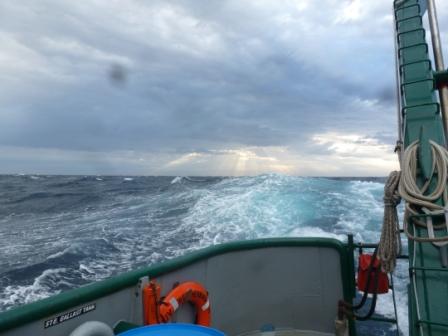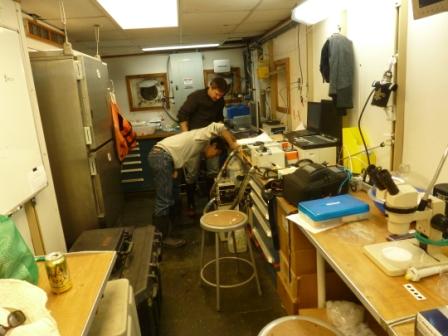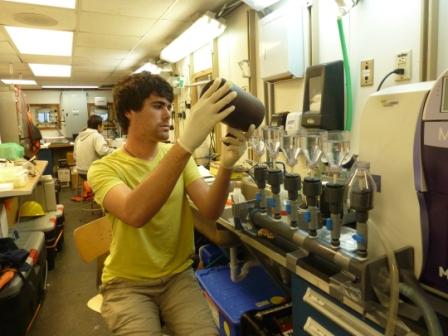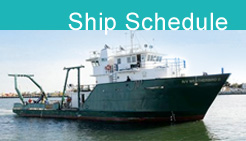Deep Sea Fish and Sediment Surveys in the Gulf
The Weatherbird II encounters rough conditions in the Gulf of Mexico
Life on board the R/V Weatherbird II got a bit uncomfortable this morning. In many cases, the weather and seas dictate what can be done on a research vessel. There are many pieces of delicate scientific equipment on board that must be secured. Anything that isn’t secured will find its way to somewhere it shouldn’t be and could possibly be broken. Also, when deploying large pieces of equipment such as the multicorer, CTD, or the SIPPER, things can get a bit dicey. The last place you would want to be is between one of these and the ship when the ship is rocking. Not to mention, it is pretty difficult to perform tasks such as filtering, which involves handling small, carbon cleaned filter papers while wearing gloves and only handling them with forceps; not to mention that we are pouring water into it! Today the multicorer was deployed; but, by the time it reached the surface after being bounced around, the core samples were gone! The data being collected from each of these stations is very important in the effort to get a scientific picture of what is occurring in the Gulf of Mexico.
| Print article | This entry was posted by greely on February 8, 2013 at 5:28 pm, and is filed under Oceanic Updates. Follow any responses to this post through RSS 2.0. You can leave a response or trackback from your own site. |




